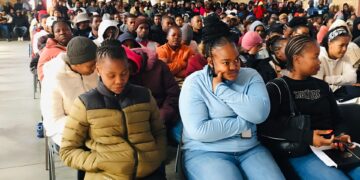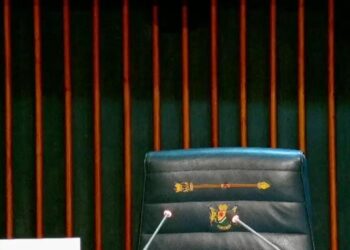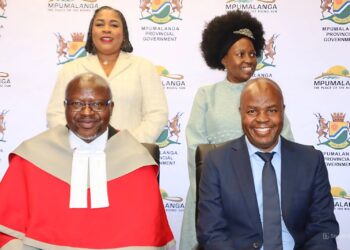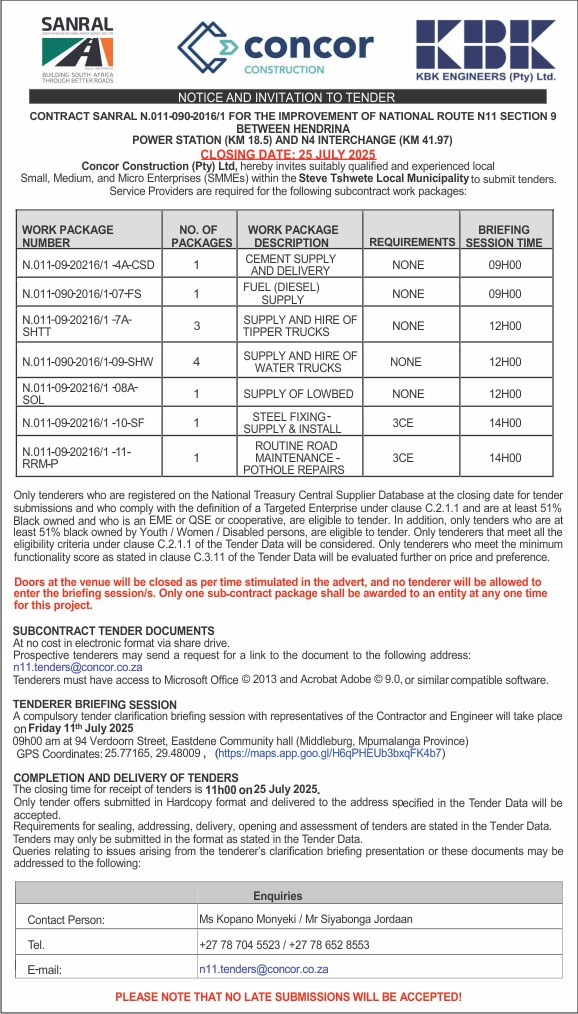MPUMALANGA – The Mpumalanga Provincial Government has unveiled its 2024/25 Adjustments Budget, with the total budget increasing to R62.95 billion from R61.61 billion. The adjustments come as part of efforts to address pressing socio-economic challenges and bolster service delivery amid slow economic growth and global uncertainties. Delivering the adjustments budget, Finance MEC Bonakele Majuba highlighted that, although 2024 began with uncertainty, recent developments have been more encouraging. Majuba attributed the positive outcome to three key factors: the improvement in power, with just over 200 days without loadshedding; the control of Consumer Price Inflation (CPI), as the province recorded an inflation rate of 3.5% in September, the joint second-lowest in the country; and lastly, the decrease in interest rates.
Key allocations were directed to infrastructure, healthcare, and education, highlighting the provincial government’s focus on improving public services. The Department of Public Works, Roads, and Transport saw its budget rise to R5.8 billion, with an additional R236.7 million allocated. This includes R50 million to cover scholar transport shortfalls, R43.3 million for renewable energy projects, and R6.6 million to finalise the KwaMhlanga Government Complex.
The Department of Health received a significant boost, bringing its budget to R18.99 billion. Among the adjustments are R141.3 million to ensure the availability of medicines, R15 million for the purchase of ambulances, and R86.3 million for the completion of the New Middleburg Hospital. These funds aim to improve healthcare infrastructure and accessibility across the province.
Education also received a notable allocation, with its budget increasing to R26.64 billion. This rise of R272.7 million includes R160 million dedicated to learner support materials and e-learning initiatives, R20 million for the Mpumalanga Regional Training Trust, and R10 million to eliminate pit latrines in schools.
The agriculture sector saw its budget grow to R1.67 billion, with R107.6 million allocated to operationalise the Mpumalanga International Fresh Produce Market and R49.9 million set aside for agricultural production support. Similarly, the Department of Economic Development and Tourism received an increased budget of R1.47 billion, including R51.9 million for the Fresh Produce Market and improvements at Mthethomusha.
Social services and disaster relief also featured prominently in the budget adjustments. The Department of Social Development’s budget increased to R1.75 billion, with an additional R36 million for social relief programs. The Department of Co-operative Governance and Traditional Affairs received an additional R58.8 million, including R40 million for disaster relief following recent storms, R10 million for the House of Traditional Leaders, and R8.7 million for appointing Headmen and Headwomen in Traditional Councils.
Revenue collection was highlighted as a critical component of funding the provincial priorities, with Provincial Treasury reporting R1.6 billion in revenue collected during the first half of the fiscal year. The Department of Community Safety, Security, and Liaison was allocated an additional R79.7 million to enhance traffic law enforcement and licensing functions.
These budget adjustments reflect the government’s commitment to improving service delivery and addressing the needs of Mpumalanga’s communities while navigating financial and economic pressures.

























